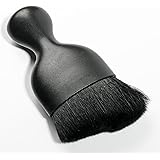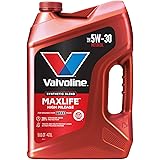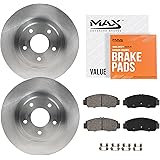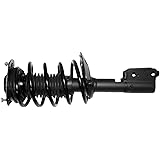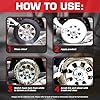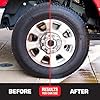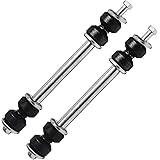Table of Contents
Do you like cars and want to make yours run and sound better? Is a resonator delete legal? It can be difficult to determine whether the numerous types of information available online are reliable.
In this blog post, we’ll go into detail about whether or not you can take out a resonator. This will help you decide if it is right for you and your car.
We’ll also answer some of the most common questions people have about this change, such as how it affects rules about noise pollution and why resonators are even put in modern cars.
We’ll also talk about the resonator delete pros and cons. No matter how long you’ve been changing cars or how new you are to it, this post will help you in some way.
Find out by reading on!

What Is A Car Resonator?
If you like cars, you may have heard of a car resonator or a resonator removal. But what is a resonator? Why would someone want to get rid of one?
To modulate the exhaust note and lessen overall noise, you can install a resonator in your vehicle. Even though they are helpful, some people choose to get rid of the resonator to make their car sound louder.
This change, called a “resonator delete,” is a simple and cheap way to get the sound you want. Just remember that you should check the laws in your area before making any changes to your exhaust system to make sure it’s legal.
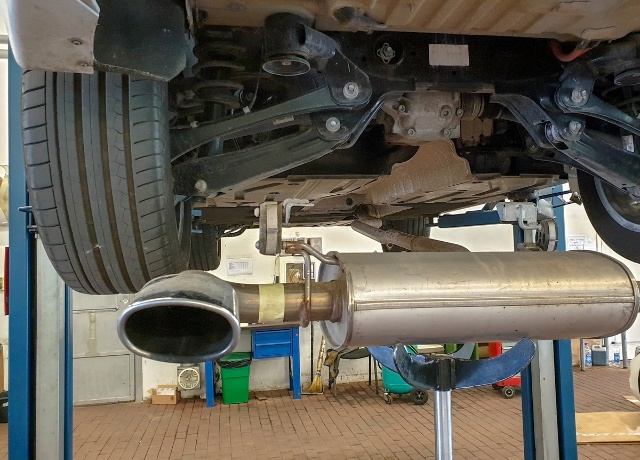
Types of A Car Resonator:
A car resonator is a part of the exhaust system that helps make a certain tone or sound. While some choose to have them removed entirely (a process known as a “resonator delete”), others opt to upgrade them for enhanced functionality.
It’s important to understand the different kinds of resonators so you can choose the right one for your car. You can pick from a wide variety of materials and designs, including:
- Ceramic
- Crystal
- Coaxial
- Dielectric
- Surface Acoustic Wave (SAW)
- Yttrium Iron Garnet (YIG)
Each type has its own set of qualities and perks that make it stand out. As a car fan, if you look at your options and choose the best resonator for your car, it will be more fun to drive.

What Is A Resonator Delete?
To reduce engine noise, certain vehicles use resonators, which are essentially chambers in the exhaust system. But this can also stop the flow of exhaust and lower the power of the car.
By doing a “resonator delete,” you get rid of this chamber, which lets more air into your engine and makes it more powerful. Taking out the resonator can also make the sound of your car’s exhaust more powerful and full.
So, if you want to get the most out of your car and give it a high-performance sound, you might want to get rid of the resonator.
Is A Resonator Delete Legal?
If you take it off, the exhaust might get louder, but as long as it doesn’t get too loud, you should be fine. But keep in mind that rules change from state to state and even from town to town, so it’s always a good idea to check with the DMV in your area.
There are a number of factors to consider before deciding to remove the resonator, including whether or not doing so will improve your vehicle’s performance and whether or not the resulting noise level will be acceptable to you or violate local noise ordinances.
In the end, if you think about it and do your research, removing the resonator from your car’s exhaust system can be a legal and useful change.

How To Do A Resonator Delete:
Step 1: Jack up the car and Locate the resonator:
To get rid of the resonator, you have to jack the car up and put it on stable jack stands. It’s important to install the resonator(s) after the catalytic converter and before the muffler.
Step 2: Cut the exhaust pipe and Remove the resonator:
Wear earplugs, safety glasses, and gloves to keep yourself safe while cutting the exhaust pipe. Cut the pipe up to two inches before and after the resonator with a saw blade or an angle grinder.
If the resonator is hard to take off, check your cuts and try again. Remove the muffler from the car’s bottom.
Step 3: Weld the Exhaust pipes together:
The last step is to put the broken exhaust pipes back together after it has been taken off. This can be done by welding, but if you don’t know how to do it, it’s best to let a professional do it.
You could also use bolts from an exhaust clamp kit to hold the parts together. This is a temporary solution that doesn’t require you to know how to weld.
Does Removing a Resonator Increase Horsepower?
Yes! It does. Even though removing a silencer could give you more horsepower, it’s important to remember that this might not be enough on its own. If the resonator is dirty, the flow of sound can be slowed down. This makes the car less strong.
If you want to get the most speed gains from removing the resonator, you should also get a new exhaust system or upgrade the engine parts. Talk to a skilled driver or tuner to figure out the best way to improve your car.
How Much Does a Resonator Delete Cost?
You might want to make a change with a resonator removal. With this easy change, your car can get more horsepower and sound more strong. The best part is that it won’t cost you much money.
A resonator delete costs between $100 and $200, so it’s a cheap way to make your car go faster. You can save money on labor costs by doing the work yourself if you have a firm grasp of the appropriate tool(s) for the job.
So, if you want to give your car some style on the cheap, you might want to think about getting rid of the resonator.
Pros of A Resonator Delete
Improved Sound Quality:
If you take out a resonator, the engine can sound bigger and stronger. This makes it more fun to drive. You should give some thought to your preferences and the desired engine sound before making this adjustment.
Reduced Weight:
Resonators can weigh up to 25 pounds, so removing one from a car can make it lighter. This weight loss could make you faster, so people who like to race often make this change.
It’s legal:
A resonator delete is allowed in many places as long as it doesn’t make too much noise. Check the laws in your area, though, because it may be against the law there. Find out if it is allowed in your area.
Improved Performance:
Taking out a resonator from the exhaust system can make the engine produce more power by cutting the back pressure. But the improvements aren’t as big as those from a better turbo or intake system. If the resonator is taken out, the power could go up by about 1 to 5 horsepower.
No Maintenance Needed:
After removing the resonator, maintenance is unnecessary. Just ensure proper installation to prevent corrosion or leaks in the exhaust system.
Cheap and Easy To Do:
Resonator removal is a simple change that doesn’t cost much and makes the engine sound better. Kits are cheap, and it takes less than two hours to put them together. It’s a good way to change the exhaust system of a car for $100 to $200.
Cons of A Resonator Delete
Might Void Warranty:
If you remove the resonator from your car, the guarantee may no longer be valid. Before making changes, check with the seller.
Check Engine Light Might Come On:
Taking away a car’s silencer could cause the check engine light to come on and could impair the catalytic converter’s performance. Even though the light is often a false warning, you should talk to a mechanic if it comes on.
Reduced Exhaust Flow Speed:
If you take the silencer out of your car’s exhaust system, the fumes will move more slowly, which will make your car less powerful. It could also stop the flow of exhaust, but the effect is generally small and not noticeable.
The Car Might Get Too Loud:
Removing the resonator can make the car excessively loud, which can be either enjoyable or bothersome depending on personal preference.
It Could Create an Idling Issue:
Removing the resonator from a car can cause idling issues and disrupt airflow in older vehicles. Returning or reducing airflow may be necessary.
Frequently Asked Questions:
What is a resonator used for?
A resonator changes the frequency of the sound waves made by the air coming out of the engine. Installed between the catalytic converter and the muffler, it gets rid of a certain range of sound frequencies, especially high-pitched noises, and annoying hums and buzzes, making the sound quieter and less annoying.
Can a resonator delete be taken back?
Yes, a resonator can be taken out. If you decide you want to use a resonator again, you can have one put back on your car.
If a car’s resonator is taken out, will it fail a pollution test?
Removing the resonator doesn’t directly change the emissions system, so your car shouldn’t fail an emissions test because of it. But local rules and review standards can be different, so it’s always a good idea to check.
If I take out the resonator, will my insurance be canceled?
If taking out the resonator causes other problems with the exhaust system, it could mean that your car’s guarantee is no longer valid. You should talk to your source or read your warranty agreement before making this change.
What does the muffler on a car do?
The resonator changes and gets shorter before the sound waves from the engine leave the car. It works with the muffler to keep your car from making too much noise, which makes it less annoying.
Does getting rid of the resonator make it work better?
By lowering back pressure, removing the resonator can make the power output a little bit better, but the changes aren’t very big. The biggest advantage is that it makes the car lighter and makes the engine sound better.
Does a straight pipe hurt your engine?
To get a straight pipe, all of the mufflers and resonators have to be taken off. Over time, your engine could be hurt by the hotter output and lack of back pressure. It can also make the smoke sound very loud, which could be against noise rules in the area.
Which is better: taking off the silencer or the muffler?
Whether you take off the muffler or the silencer will depend on what you want to do. Getting rid of the muffler will make your car much louder and may give it a small speed boost.
Taking out the resonator will change how your car’s exhaust sounds and may also give you a small speed boost.
Before making a choice, you should think about possible legal issues, how they might affect your car’s warranty, and your own tastes.
Conclusion:
In conclusion, removing a resonator is usually acceptable as long as your exhaust system doesn’t make too much noise overall. This rule does not always hold true, though. Before you make any changes, you should check the local laws again to make sure you won’t be breaking any of them.
This can keep you from having to pay fines or other fees that are expensive because you have a system that isn’t allowed. You should also consult a local auto shop or technician to find out what kinds of modifications are legal in your area and if they offer any specialized services that could assist you in personalizing your vehicle.
Safe driving is always important, so when you make changes to your car, don’t forget to think about safety and duty.


